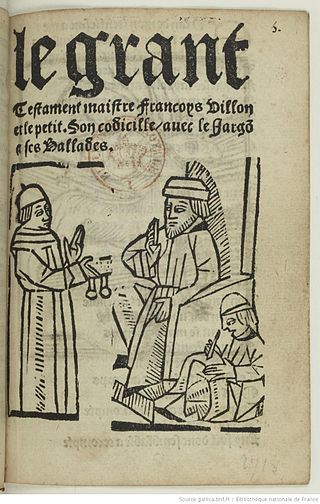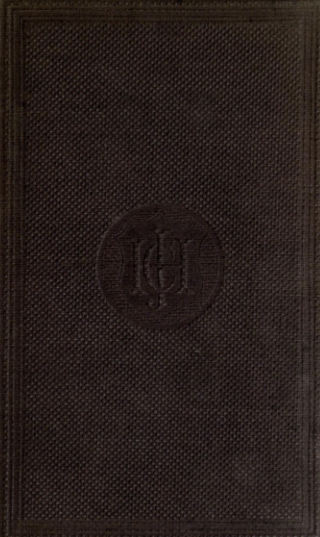
Rhyming slang is a form of slang word construction in the English language. It is especially prevalent among Cockneys in England, and was first used in the early 19th century in the East End of London; hence its alternative name, Cockney rhyming slang. In the US, especially the criminal underworld of the West Coast between 1880 and 1920, rhyming slang has sometimes been known as Australian slang.

Internet slang is a non-standard or unofficial form of language used by people on the Internet to communicate to one another. An example of Internet slang is "LOL" meaning "laugh out loud." Since Internet slang is constantly changing, it is difficult to provide a standardized definition. However, it can be understood to be any type of slang that Internet users have popularized, and in many cases, have coined. Such terms often originate with the purpose of saving keystrokes or to compensate for small character limits. Many people use the same abbreviations in texting, instant messaging, and social networking websites. Acronyms, keyboard symbols, and abbreviations are common types of Internet slang. New dialects of slang, such as leet or Lolspeak, develop as ingroup Internet memes rather than time savers. Many people also use Internet slang in face-to-face, real life communication.
A slang is a vocabulary of an informal register, common in verbal conversation but avoided in formal writing. It also sometimes refers to the language generally exclusive to the members of particular in-groups in order to establish group identity, exclude outsiders, or both. The word itself came about in the 18th century and has been defined in multiple ways since its conception.
Jargon or technical language is the specialized terminology associated with a particular field or area of activity. Jargon is normally employed in a particular communicative context and may not be well understood outside that context. The context is usually a particular occupation, but any ingroup can have jargon. The key characteristic that distinguishes jargon from the rest of a language is its specialized vocabulary, which includes terms and definitions of words that are unique to the context, and terms used in a narrower and more exact sense than when used in colloquial language. This can lead outgroups to misunderstand communication attempts. Jargon is sometimes understood as a form of technical slang and then distinguished from the official terminology used in a particular field of activity.

Pussy is a term used as a noun, an adjective, and—in rare instances—a verb in the English language. It has several meanings, as slang, as euphemism, and as vulgarity. Most commonly, it is used as a noun with the meaning "cat", "coward", or "weakling". In slang usage, it can mean "vulva or vagina" and less commonly, as a form of synecdoche, meaning "sexual intercourse with a woman". Because of its multiple senses including both innocent and vulgar connotations, pussy is often the subject of double entendre.

An antiquarian or antiquary is an aficionado or student of antiquities or things of the past. More specifically, the term is used for those who study history with particular attention to ancient artifacts, archaeological and historic sites, or historic archives and manuscripts. The essence of antiquarianism is a focus on the empirical evidence of the past, and is perhaps best encapsulated in the motto adopted by the 18th-century antiquary Sir Richard Colt Hoare, "We speak from facts, not theory."
Shelta is a language spoken by Mincéirí, particularly in Ireland and the United Kingdom. It is widely known as the Cant, to its native speakers in Ireland as de Gammon or Tarri, and to the linguistic community as Shelta. Other terms for it include the Seldru, and Shelta Thari, among others. The exact number of native speakers is hard to determine due to sociolinguistic issues but Ethnologue puts the number of speakers at 30,000 in the UK, 6,000 in Ireland, and 50,000 in the US. The figure for at least the UK is dated to 1990. It is not clear if the other figures are from the same source.

Eric Honeywood Partridge was a New Zealand–British lexicographer of the English language, particularly of its slang. His writing career was interrupted only by his service in the Army Education Corps and the RAF correspondence department during World War II.
A cant is the jargon or language of a group, often employed to exclude or mislead people outside the group. It may also be called a cryptolect, argot, pseudo-language, anti-language or secret language. Each term differs slightly in meaning; their uses are inconsistent. Richard Rorty defines cant by saying that "'Cant', in the sense in which Samuel Johnson exclaims, 'Clear your mind of cant,' means, in other words, something like that which 'people usually say without thinking, the standard thing to say, what one normally says'." In Heideggerian terms it is what "das Man" says.
"Chav", also "charver", "scally" and "roadman" in parts of England, is a British term, usually used in a pejorative way. The term is used to describe an anti-social lower-class youth dressed in sportswear. The use of the word has been described as a form of "social racism". "Chavette" is a related term referring to female chavs, and the adjectives "chavvy", "chavvish", and "chavtastic" are used to describe things associated with chavs, such as fashion, slang, etc. In other countries like Ireland, "Skanger" is used in a similar manner. In Canada, in the province of British Columbia they're known as "Surrey jacks". In Ontario, the term is "hoodman", an equivalent of the term "roadman" used in England. In Newfoundland, "skeet" is used in a similar way, while in Australia, "eshay" or "adlay" is used.
Elbow grease is an idiom for manual labour and the process of working hard to accomplish an objective. It is a figure of speech for indicating that nothing other than one's own labour is required for a task, capable of being used in a humorous way. Oxford Languages defines “elbow grease” as “hard physical work, especially vigorous polishing or cleaning”.
Medical slang is the use of acronyms and informal terminology to describe patients, other healthcare personnel and medical concepts. Some terms are pejorative. In English, medical slang has entered popular culture via television hospital and forensic science dramas such as ER, House M.D., NCIS, Scrubs, and Grey's Anatomy, and through fiction, in books such as The House of God by Samuel Shem, Bodies by Jed Mercurio, and A Case of Need by Jeffery Hudson

Terms used to describe homosexuality have gone through many changes since the emergence of the first terms in the mid-19th century. In English, some terms in widespread use have been sodomite, Achillean, Sapphic, Uranian, homophile, lesbian, gay, effeminate, queer, homoaffective, and same-gender attracted. Some of these words are specific to women, some to men, and some can be used of either. Gay people may also be identified under the umbrella term LGBT.

Thieves' cant is a cant, cryptolect, or argot which was formerly used by thieves, beggars, and hustlers of various kinds in Great Britain and to a lesser extent in other English-speaking countries. It is now mostly obsolete and used in literature and fantasy role-playing, although individual terms continue to be used in the criminal subcultures of Britain and the United States.
A slang dictionary is a reference book containing an alphabetical list of slang, which is vernacular vocabulary not generally acceptable in formal usage, usually including information given for each word, including meaning, pronunciation, and etymology. It can provide definitions on a range of slang from more mundane terms to obscure sexual practices. Such works also can include words and phrases arising from different dialects and argots, which may or may not have passed into more common usage. They can also track the changing meaning of the terms over time and space, as they migrate and mutate.

Prison slang is an argot used primarily by criminals and detainees in correctional institutions. It is a form of anti-language. Many of the terms deal with criminal behavior, incarcerated life, legal cases, street life, and different types of inmates. Prison slang varies depending on institution, region, and country. Prison slang can be found in other written forms such as diaries, letters, tattoos, ballads, songs, and poems. Prison slang has existed as long as there have been crime and prisons; in Charles Dickens' time it was known as "thieves' cant". Words from prison slang often eventually migrate into common usage, such as "snitch", "ducking", and "narc". Terms can also lose meaning or become obsolete such as "slammer" and "bull-derm."

The Royal Air Force (RAF) developed a distinctive slang which has been documented in works such as Piece of Cake and the Dictionary of RAF slang.

A Dictionary of Modern Slang, Cant and Vulgar Words is a dictionary of slang originally compiled by publisher and lexicographer John Camden Hotten in 1859.

John Stephen Farmer also known as J. S. Farmer was a British lexicographer, spiritualist and writer. He was most well known for his seven volume dictionary of slang.











